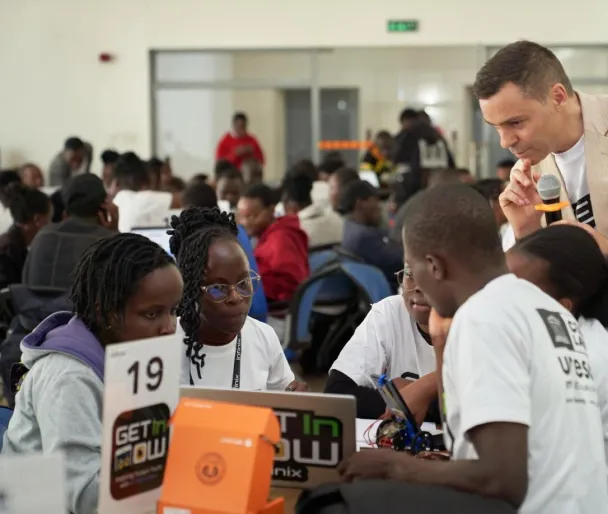Where to start when you have an idea for an app

Having a brilliant app idea is exciting, but turning that spark into a successful digital product requires strategic planning, validation, and execution. Whether you're a budding entrepreneur or an established business looking to innovate, this guide will help you navigate the crucial first steps of your app development journey.
Understanding the App Development Landscape
The mobile app market continues to grow exponentially, with over 5.5 million apps available across major app stores. While this represents tremendous opportunity, it also means your app needs to stand out in an increasingly crowded marketplace.
In New Zealand's growing tech ecosystem, successful apps typically share several characteristics:
- They solve a genuine problem or fulfil a clear need
- They offer an intuitive, engaging user experience
- They provide unique value that differentiates them from competitors
- They have a sustainable business model
Start with the Problem, Not the Solution
Before diving into development, take time to clearly articulate the problem your app will solve. Ask yourself:
- Who experiences this problem most acutely?
- How are they currently addressing it?
- Why are existing solutions inadequate?
- What would an ideal solution look like from their perspective?
This problem-focused approach ensures your app addresses a genuine need rather than becoming a solution in search of a problem.
Research and Validation: Test Before You Invest
The most successful apps are built on a foundation of solid research and validation. Here's how to begin:
- Conduct market research
- Analyse similar apps in your target market
- Identify gaps in existing offerings
- Understand your potential competitors' strengths and weaknesses
- Test your concept
- Create simple prototypes or mockups
- Gather feedback from potential users
- Refine your concept based on insights
- Validate demand
- Run surveys or interviews with your target audience
- Create a landing page to gauge interest
- Consider pre-sales or crowdfunding to test willingness to pay
Define Your Minimum Viable Product (MVP)
An MVP is the simplest version of your app that delivers value to users. By focusing on core functionality first, you can:
- Get to market faster
- Reduce initial development costs
- Gather real-world user feedback
- Iterate based on actual usage data
When defining your MVP, prioritise features that:
- Directly address the core problem
- Provide immediate value to users
- Differentiate your app from alternatives
- Support your primary business objectives
Explore Funding Options
Developing an app requires investment. In New Zealand, several funding avenues are worth exploring:
- Self-funding: Using personal savings or revenue from existing business
- Angel investors: Search for angel investing groups in New Zealand or abroad
- Incubators and accelerators: Programmes like Lightning Lab or Startup Weekends
- Strategic partnerships: Collaborating with established businesses in your sector
Build Your Team or Find a Development Partner
Unless you have strong technical skills, you'll need to build a team or partner with experts who can bring your vision to life. Consider:
- Technical co-founder: Someone with development expertise who shares your vision
- Digital product agencies: Companies like RUSH that specialise in end-to-end app development
- Specialised freelancers: For specific aspects of development, design, or marketing
When evaluating potential partners, look for:
- Relevant experience in your industry or app category
- A portfolio of successful apps with positive user reviews
- A collaborative approach that values your input
- Transparent processes and communication
Create a Development Roadmap
A clear roadmap helps guide development and manage expectations. Your roadmap should include:
- Discovery and design phase: Research, wireframing, and UX/UI design
- Development milestones: Key features and functionality to be implemented
- Testing phases: Including both technical testing and user testing
- Launch strategy: Marketing, distribution, and user acquisition plans
- Post-launch iterations: Based on user feedback and performance data
Consider the Business Side Early
Your app isn't just a product—it's a business. Early consideration of business elements increases your chances of success:
- Revenue model: Will you charge for downloads, use subscriptions, in-app purchases, or advertising?
- Marketing strategy: How will you reach and acquire users?
- Customer support: How will you address user issues and feedback?
- Growth plan: How will you scale if successful?
Learn from Others' Journeys
New Zealand has a growing community of app entrepreneurs. Seek out:
- Local meetups and events for tech entrepreneurs
- Incubator and accelerator programmes like those offered by CreativeHQ or The Icehouse
- Online communities and forums focused on app development
- Mentors who have successfully launched apps or digital products
Take the First Step
Beginning your app development journey might seem daunting, but remember that every successful business started with a single step.
Ready for the Next Level? Do These First
Before approaching a development partner like RUSH, ensure you've laid a solid foundation:
- Complete thorough validation of your concept with potential users
- Secure your initial funding through grants, investors, or personal resources
- Define a clear MVP scope with prioritised features and desired outcomes
- Develop a business plan including revenue model and go-to-market strategy
- Gather preliminary research and insights to inform the development process
Once you've completed these crucial steps, you'll be in the perfect position to engage with an enterprise digital partner who can transform your validated concept into a polished, market-ready product. This preparation not only makes the development process more efficient but also significantly increases your chances of success in the competitive app marketplace.
Good luck!








